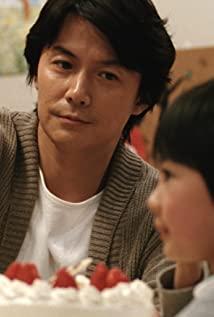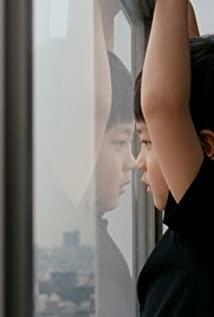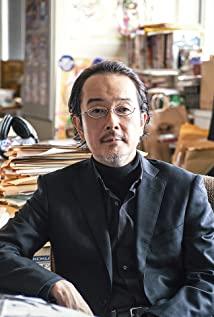, this movie is very cold.
His pictures are mostly cool tones, his soundtrack is a kind of light piano music, the actors' performances don't have any big fluctuations, and the plot is very stable. These elements are added together to form such a cool movie. I've never quite understood the Japanese indifference in the mouths of those joking people, but after watching the movie, I seem to understand a little bit. I can only say, "Like Father Like Son", this is very Japanese.
Why tell a story that is so contradictory that there is almost no solution to it? Movies can be made a little more hoarse. Just like our emotional dramas and youth-themed movies, there will definitely be scenes where people shouting confessions or shouting explanations are very tiring to act and even more tiring to watch.
Let’s get out of this question first and tell the story first. The film starts with the elite family of Nonomiya. His father, Nonomiya, had a lot of indifference, and was estranged from his children. He tried to instill elitist education in his children. However, there is a lack of parent-child love in education. Mother Nonomiya Green, gentle and virtuous, can also be said to obey her husband, should be the kind of Japanese standard of a good wife and good mother. The son, Nonomiya Keita, was disciplined with a well-behaved appearance. Children should be very alienated from their father, even if they practice the piano, it is for the praise of their father.
A hospital accident brings out the Saiki family. The first impression of his father, Saiki Yuda, is that of a loser, especially compared to many. He is even more vulgar. When faced with the matter of carrying the wrong child, his first reaction was to think of the compensation from the hospital. Relatively speaking, mother Eucalyptus showed a little wisdom, and it seemed like the right to run the family. The son Saiki Suokawa is also carefree and looks much rougher.
"A cat or a dog can't be decided casually," let alone a son who has been with him for a few years. On the one hand, it is the self-righteousness of an elite family who wants to adopt two children, and on the other hand, it is the common people in the market who are at ease. Facing these two sons, they have a more like "put aside disputes and develop together" mentality. On the one hand, the father seems to be careless, but he can actually put his time on the child; In such a fierce conflict, everyone's emotions are very restrained, and even in the movie, there are very few extreme emotions.
We are told later in the movie that the reason why Nonomiya Ryota is like this has a lot to do with his father's actions. Then can we infer that Saiki Yuda's father will also be a person who, although not very successful, is willing to spend time with the family. In this way, the translation name of "Like Father Like Son" is not very clever, and it is too literary and unintelligible. And "As Father Like Son" or "And Becoming Dad" can tell us more about what the movie wants to say. The influence of the father is so powerful that a single word can change one's strategy. In the blood, there may be some things that will become the fetters between people, even if you don't want to admit it.
But in the end, Nonomiya gave up being another father of his own. He no longer asked for the success of his children, and he also abandoned a strong sense of belonging to the blood. Yes, this accident may be an opportunity given to the two families by God. "One more brother and sister" is not a beautiful thing. Is blood relationship really that important? Is it not as good as years of affection?
Going back to the previous question, why are everyone’s feelings so suppressed, I think, on the one hand, the Yamato nation itself is a nation that does not release its own emotions, on the other hand, it is coherent and calm, which can make even the slightest emotional changes. Being perceived by the audience and expressing such a change is precisely what the film focuses on.
We can be someone other than our father.
View more about Like Father, Like Son reviews











